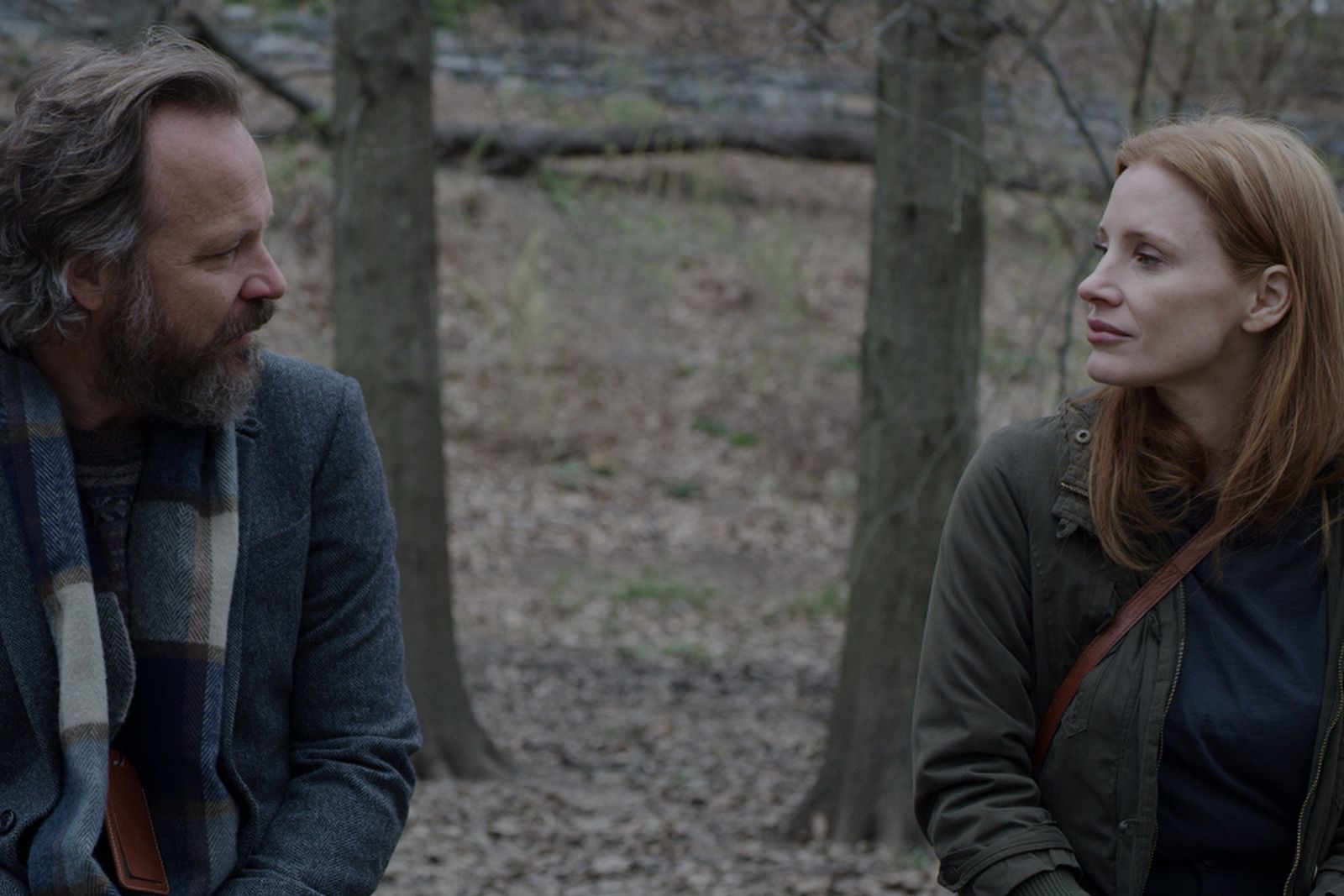You wouldn’t normally watch a Michel Franco film expecting a happy ending. The Mexican filmmaker has a brutally dispassionate style and a worldview you could kindly describe as bleak. However, new film Memory is easily the most hopeful and tender work from the director of Chronic, Sundown, and New Order. That’s a low bar for sure, and there’s a world of complexity and pain to navigate before it dares to enter the orbit of hope, but this elusive drama is as close to uplifting as you’re going to get from Franco.
Jessica Chastain and Peter Sarsgaard give incredibly assured and controlled performances as Sylvia, a woman whose memories of childhood abuse led her to alcoholism, and Saul, a middle-aged man who is losing his memory as his early-onset dementia intensifies. The pair meet when Saul sits down next to Sylvia at a school reunion. Sylvia reacts badly, storming out. Saul follows her home and sleeps outside her house. She has mistaken him for one of a group of older boys who forced her to perform sexual acts on them when she was 12. He was suffering an episode and simply felt drawn to her. Social worker Sylvia agrees to take on a carer role for Saul as a second income, and the pair begin to develop a connection that could be mutually beneficial, or worryingly codependent.
Memory is a difficult film to parse. Unlike many films that deal with such themes it does so on a visually remote level. Franco prefers to keep his camera static, slung low like Ozu. Even when he indulges in close-ups, it tends to be in profile, cutting out the direct route to a character’s thoughts one might glean from their eyes. It leaves body language as the most significant clue to Sylvia’s mental state in particular, especially after falsely accusing Saul of being one of her abusers. Her nervous twitchiness intensifies and we begin to wonder just how much her version of events is true. Her family situation is equally muddy. She refuses to see her mother (Jessica Harper) and somewhat resents her younger sister (Merritt Wever) for still being close their parents. In other hands, there would be a dramatic revelation one way or the other. But Franco, as is his way, refuses anything that neat.
Instead, there’s a constant ebb and flow between Sylvia and Saul that becomes cumulatively compelling, one could argue despite Franco’s methods of filming having a distancing effect. The slowly developing closeness between the two seems counter-intuitive, and there’s the sense that long-term grief may be on the cards for Sylvia after her short-term comfort with someone who through his very illness lives perpetually for the moment. And it’s that lack of finality that works in the film’s favour. Connection may be fleeting, but you’d be hard-pushed to grudge either Sylvia or Saul grasping for it when it’s there.
On the negative side, one can argue that abuse and trauma aren’t subjects to be wielded like a narrative Sword of Damocles that may or may not fall, and the possibility that Sylvia has misremembered, or exaggerated, her abuse is a potentially tough prospect when we’re so firmly rooted in her perspective. It takes someone of Jessica Chastain’s ability – and she’s phenomenal here – to retain the audience’s empathy. Sarsgaard matches her with a quiet sadness that’s at odds with the shaggy, almost late-period Orson Welles type of physicality he brings to the role.
If it all sounds too much for just the merest glimmer of hope, you could hardly be blamed. Michel Franco at his most positive and hopeful still begins from the darkest of places, but there is something of something deeply rewarding in this mature, and ultimately very compassionate depiction of two people trying to wring some mutual affection from each other. Star-crossed love it isn’t, but more often than not, it doesn’t have to be.
Memory is in UK and Irish cinemas from Fri 23 Feb 2024. Memoryfilm.uk
